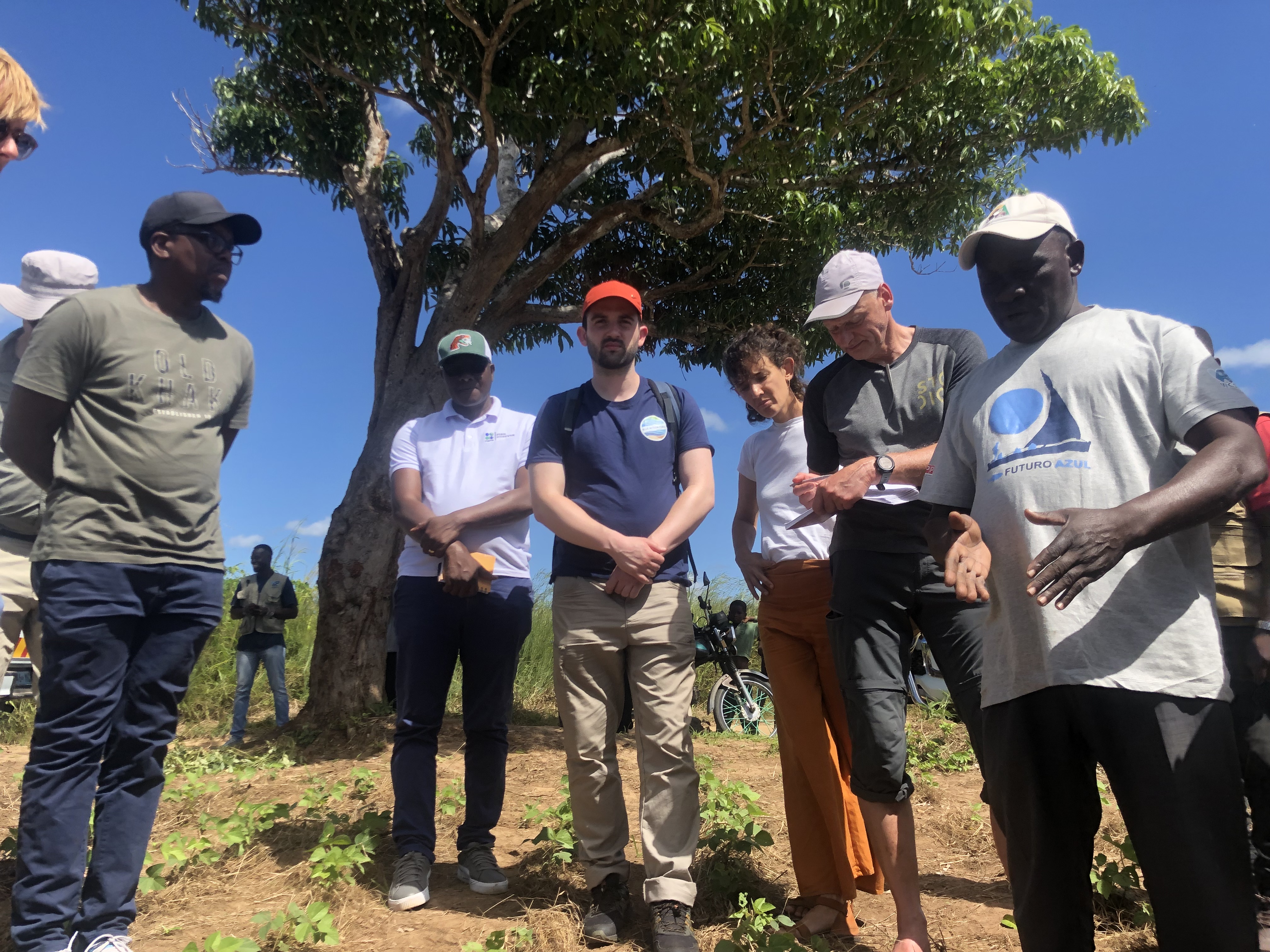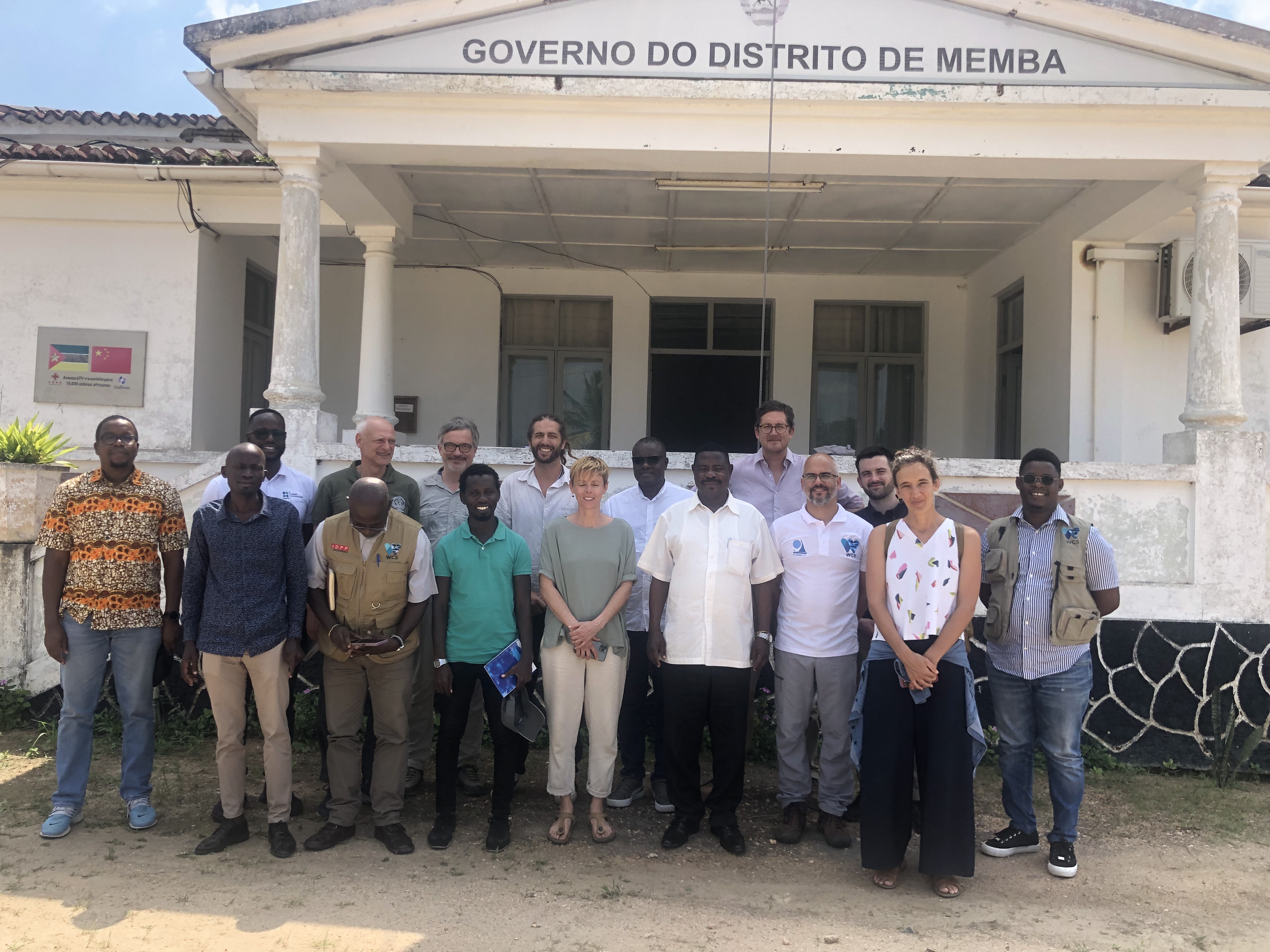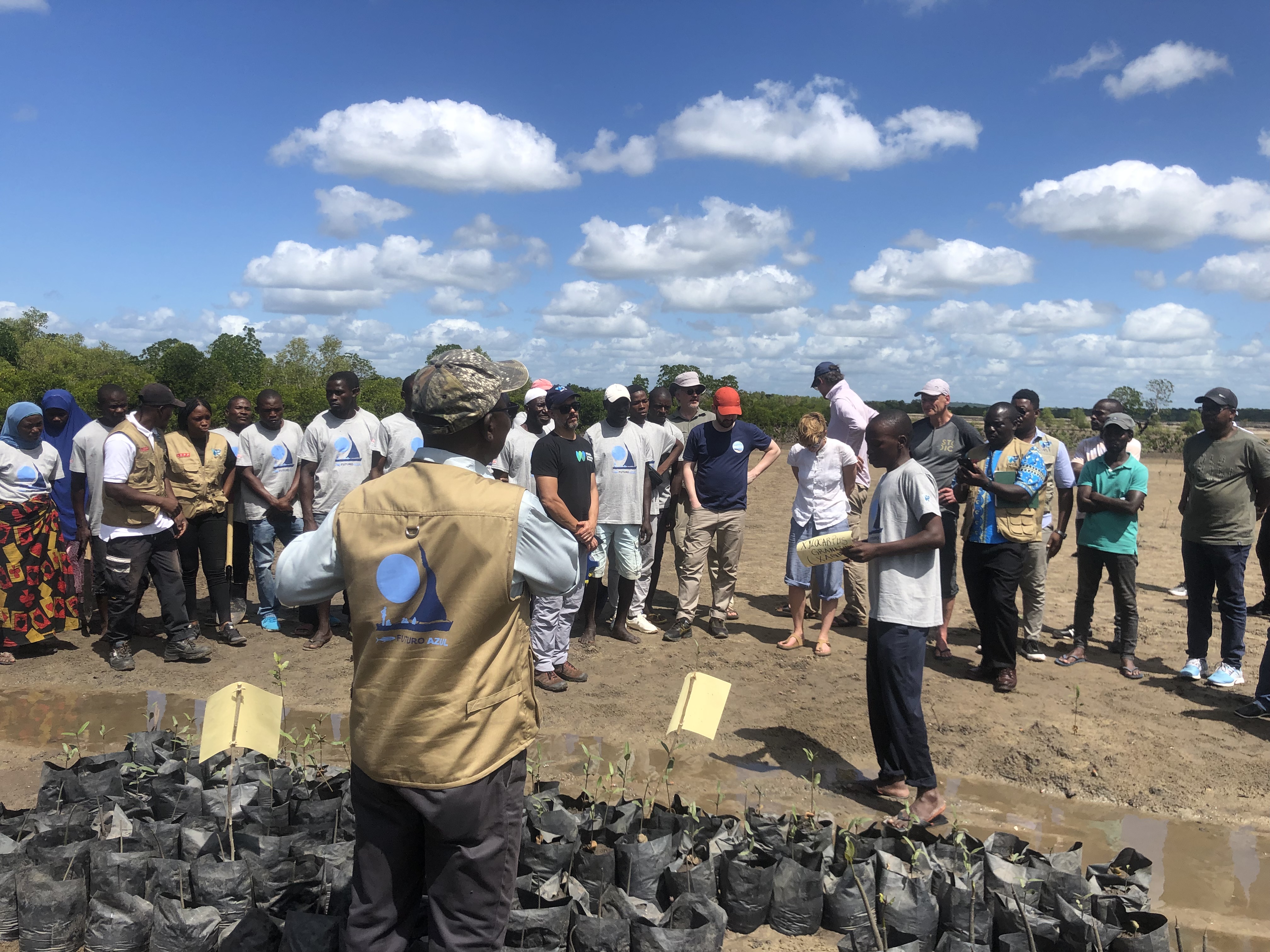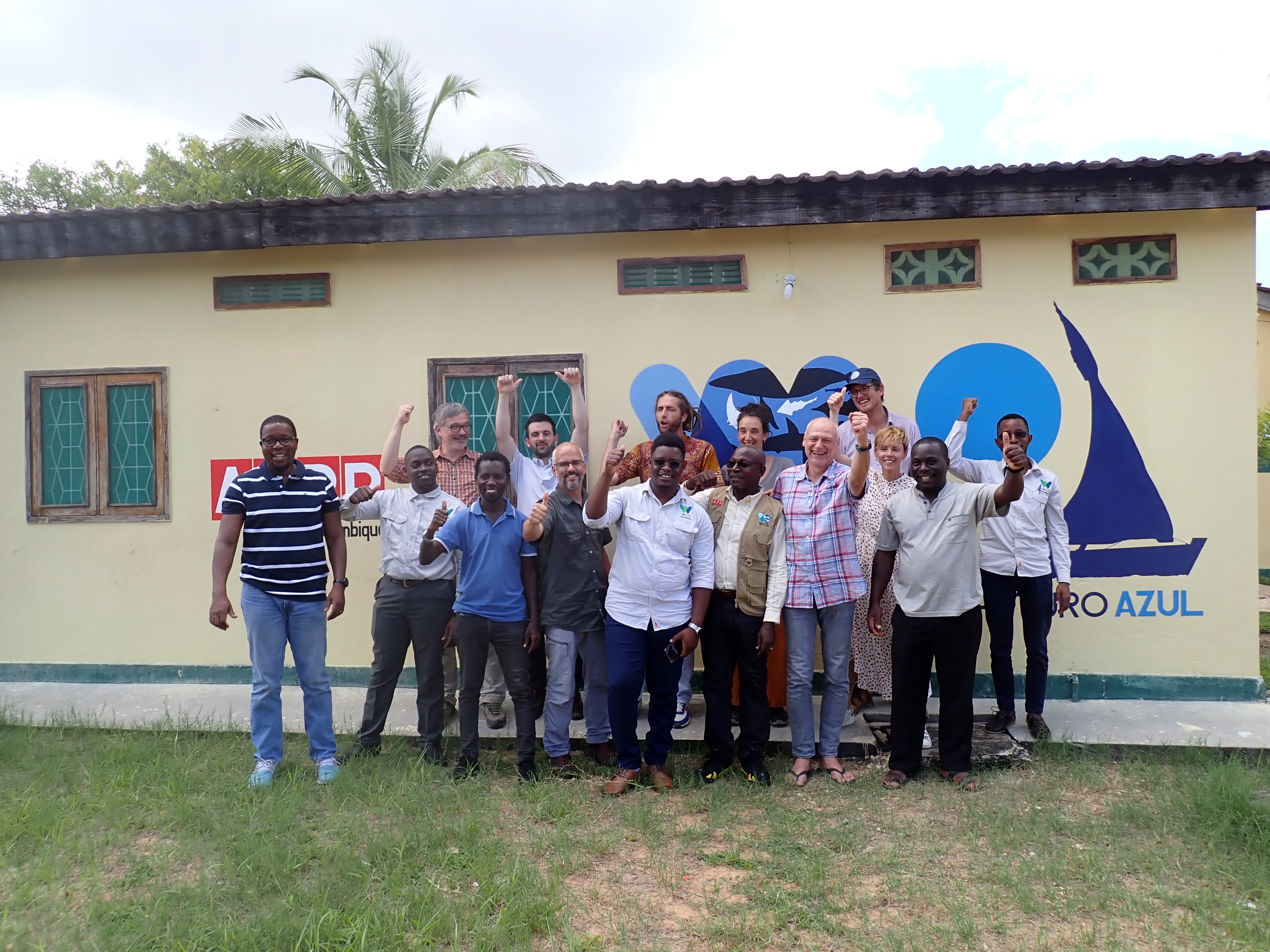Between 22 and 27 April 2023 Blue Action Fund and KfW visited Blue Future project area, in Nampula Province, Mozambique, to learn on how the project is being implemented and see the first results on the ground.

The visit started with a kick-off meeting at ADPP (Ajuda de Desenvolvimento de Povo para Povo) offices in Mossuril, which was attended by all partners of the consortium (ProAzul, BioFund and UEM), some of which remotely from Maputo. Starting from the Mozambican Island, passing through Mossuril, Nacala and up to Memba, the Wildlife Conservation Society and two of its project partners, ADPP and Associação do Meio Ambiente (AMA) showcased the project activities that have been implemented on the ground.

The visit included a meeting in Matibane with fishers and members of a Community Fisheries Council that is being supported by the project to learn about the main challenges they face, showing the types of fishing gears they use, among open debate to get a hint of the artisanal fisheries framework. In Geba, Memba, the members of one of the livelihood clubs of the project showed their demonstration EbA farms and a mangrove restoration site. The community thanked Blue Action, KfW and the partners with a traditional meal and local cultural demonstrations.

The site visit finished at WCS and ADPP’s offices in Nacala, where a closing meeting was held. The activities were concluded in Maputo in an event organized by KfW and Blue Action Fund to exchange experiences between the conservation partners and its subgrantees that are being supported by the Blue Action in Mozambique, namely WCS, Peace Parks Foundation and Rare. The mission was a success, and the Blue Future project team will fine tune the project with Blue Action Fund and KfW’s recommendations. The project will continue its implementation till June 2027. A mid-term review is expected in approximately 18 months.

About the Blue Future project:
Taking an Ecosystem-based Adaptation (EbA) approach, WCS and partners are focusing on improving the resilience of climate-relevant ecosystems through increased protection and management. The project will establish a marine protected area (MPA) of at least 1,000 km2 (up to 7,000 km2) between Memba and Mossuril that will support the Mozambican government’s commitment to expanding the national network of MPAs from about 2% to at least 30% by 2030. Local communities will be able to use integrated community-managed fishing areas, and will be involved in restoration activities, including mangrove and seagrass rehabilitation and coral reef recovery. The project also aims to enhance and increase the resilience of the livelihoods of the most vulnerable communities, for example by generating activities that act as effective alternatives to current livelihoods, including the support of business start-ups. The ‘blue future’ envisioned for this region will be promoted through sharing knowledge with local stakeholders and communities about how to restore and protect key biodiversity, reduce vulnerability, and build resilience to climate change in the long term.